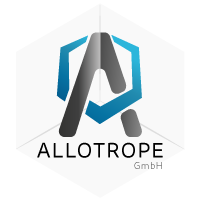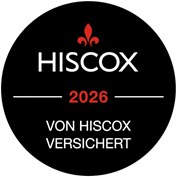Introduction
In a rapidly evolving business landscape, procurement is increasingly recognized as a strategic function that can significantly influence the success of an organization. Once viewed as a back-office necessity focused on cost savings, today’s procurement departments are tasked with much more. They are required to drive innovation, manage risks, ensure sustainability, and optimize global supply chains — all while navigating new technologies and regulatory requirements. As we look to the future, procurement professionals will face a host of emerging trends and challenges that will require a fundamental shift in how organizations approach this critical function.
This article delves into the future of procurement by examining key trends shaping the industry and the challenges businesses must address to stay competitive. We’ll also highlight how Allotrope GmbH supports organizations in navigating these trends to ensure they maximize procurement’s value.
Key Trends in Procurement
1. Digital Transformation and AI Integration The rise of digital technologies is transforming procurement processes across industries. Artificial Intelligence (AI), automation, and data analytics are no longer futuristic concepts; they are becoming integral parts of modern procurement strategies. These technologies allow organizations to automate repetitive tasks, enhance decision-making through predictive analytics, and drive efficiency throughout the supply chain.
AI’s Role in Procurement: AI tools can analyze historical procurement data to predict future purchasing needs, identify optimal suppliers, and even anticipate potential risks. For example, predictive analytics can help procurement teams forecast price fluctuations for critical raw materials, allowing them to make informed purchasing decisions.
Additionally, AI-driven chatbots and automated systems are improving procurement processes by handling routine tasks such as vendor inquiries, purchase orders, and contract renewals. This frees up procurement professionals to focus on strategic initiatives, such as supplier relationship management and innovation.
2. Sustainability in Procurement Sustainability is quickly becoming a top priority in procurement, driven by increasing consumer demand for environmentally responsible products and services. Governments are also implementing stricter regulations aimed at reducing environmental impact, pushing organizations to adopt sustainable procurement practices.
Sustainable procurement encompasses selecting suppliers that meet environmental, social, and ethical standards. This often involves evaluating suppliers based on their carbon footprint, waste management practices, and commitment to human rights. While these considerations can initially increase costs, sustainable procurement can lead to long-term savings through improved resource efficiency, reduced waste, and enhanced brand reputation.
3. Risk Management and Supply Chain Resilience The global supply chain disruptions caused by the COVID-19 pandemic underscored the importance of risk management in procurement. Organizations faced delays, shortages, and rising costs as supply chains became strained. In response, businesses are now rethinking their procurement strategies to build more resilient supply chains that can withstand future disruptions.
To enhance supply chain resilience, procurement teams are focusing on diversifying their supplier base, implementing multi-sourcing strategies, and investing in risk assessment tools. By spreading their procurement needs across multiple suppliers and regions, companies can reduce the risk of being overly reliant on a single supplier or geography.
4. Supplier Collaboration and Partnership Models The traditional adversarial approach to supplier relationships is becoming outdated as companies recognize the value of collaboration. Modern procurement strategies emphasize building strong, long-term partnerships with key suppliers to drive innovation, improve product quality, and enhance supply chain agility.
Supplier collaboration often involves working closely with vendors to co-develop products, improve production processes, and achieve shared sustainability goals. By fostering open communication and trust, procurement teams can create mutually beneficial relationships that enhance overall business performance.
Challenges in Procurement
While the trends discussed above present exciting opportunities, they also introduce significant challenges that procurement teams must navigate.
1. Data Privacy and Cybersecurity Risks As procurement becomes more reliant on digital tools and data-driven decision-making, organizations face increased cybersecurity risks. Sensitive supplier information, contract details, and payment data are valuable targets for cybercriminals. A data breach can lead to financial losses, regulatory penalties, and damage to a company’s reputation.
Procurement professionals must work closely with their IT departments to implement robust cybersecurity measures. This includes encrypting sensitive data, conducting regular security audits, and ensuring that third-party suppliers adhere to cybersecurity best practices.
2. Regulatory Compliance Globalization has made it easier for companies to source products and services from around the world, but it has also introduced new compliance challenges. Procurement teams must navigate a complex web of local and international regulations, including labor laws, environmental standards, and trade tariffs. Non-compliance can result in costly fines, delays, and reputational damage.
To mitigate these risks, procurement teams need to stay up-to-date on regulatory changes in the markets where they operate. This often involves working with legal teams and third-party compliance experts to ensure that procurement processes meet all relevant standards.
3. Managing Supplier Relationships Building strong supplier relationships is essential for successful procurement, but it’s also challenging. Procurement teams must balance the need for cost savings with the importance of maintaining positive relationships with suppliers. Pressuring suppliers for lower prices can strain relationships, leading to quality issues or supply disruptions.
To address this challenge, procurement professionals should focus on creating win-win situations that benefit both parties. This can involve negotiating long-term contracts that provide stability for suppliers while offering cost savings for the company. Additionally, procurement teams should prioritize transparency and open communication with suppliers to build trust and avoid conflicts.
The Role of Allotrope GmbH in Supporting Future Procurement Strategies
At Allotrope GmbH, we understand the complexities of modern procurement and the challenges organizations face in navigating this evolving landscape. Our team of experts specializes in helping businesses develop and implement procurement strategies that leverage the latest trends while mitigating risks.
We offer a comprehensive range of services designed to support your procurement needs, including:
- Digital Procurement Transformation: We help organizations integrate AI, automation, and data analytics into their procurement processes to enhance efficiency and decision-making.
- Sustainable Procurement Solutions: We work with clients to implement sustainable procurement practices that meet regulatory requirements and align with their environmental goals.
- Supplier Risk Management: Our team helps businesses assess and mitigate risks throughout their supply chains, ensuring continuity and resilience.
- Supplier Relationship Management: We provide guidance on building strong, collaborative relationships with suppliers that drive innovation and value creation.
By partnering with Allotrope GmbH, businesses can stay ahead of the curve and unlock the full potential of their procurement functions.
Conclusion
The future of procurement is both exciting and challenging. The rise of digital technologies, the increasing importance of sustainability, and the need for risk management are reshaping how procurement teams operate. While these trends present opportunities for innovation and growth, they also require procurement professionals to adopt new strategies and navigate complex challenges.
At Allotrope GmbH, we are committed to helping businesses thrive in this dynamic environment. Our expertise in procurement transformation, sustainability, and risk management ensures that our clients are well-equipped to meet the demands of the future. By embracing these trends and addressing the associated challenges, organizations can unlock the full potential of their procurement functions and achieve long-term success.






